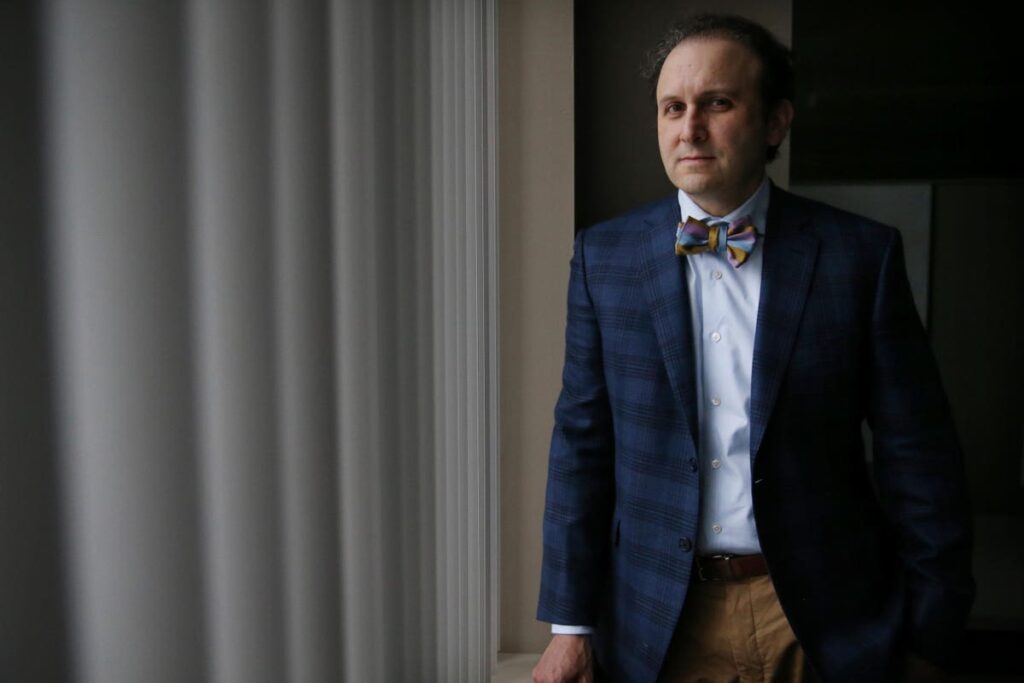In the midst of the Covid-19 pandemic, when thousands of people were dying on a daily basis, the hopes of the world rested on the biopharmaceutical industry for rapidly finding vaccines, antibodies and therapeutants. Nowhere else could such work be done. In record time, this industry delivered on all fronts, especially with vaccines from Moderna and Pfizer/BioNTech. The impact of these breakthroughs cannot be overstated. It has been estimated that, thanks to the availability of Covid-19 vaccines in the U.S., from November 2020 until March 2022, 2,265,222 deaths were averted, 17,003,960 fewer hospitalizations occurred, and 66,159,093 Covid-19 infections were avoided – all leading to $899.4 BILLION in healthcare costs averted.
(Photo by Craig F. Walker/The Boston Globe via Getty Images)
Thanks to the availability of these vaccines, the reputation of the biopharmaceutical industry rose dramatically to levels not seen since the industry’s heyday in the 1990s. This wasn’t surprising. Thanks to the extraordinary efforts of these companies, the U.S. began to climb out of the abyss of lockdowns, school shutdowns and business closures. People were grateful – and appreciative.
However, this era of good feeling hasn’t lasted. We are now past the pandemic and people are focused on other issues in the drug industry. Perhaps that was to be expected. However, what was not expected was the rewriting of history with respect to the achievements made in getting us beyond the pandemic. Typical is the testimony given last week by Harvard medical professor Dr. Aaron Kesselheim to the health subcommittee of the House Ways and Means Committee. Dr. Kesselheim, who has no experience in the biopharmaceutical industry, shared his views about “meaningful medical innovation”. His thoughts about the Covid-19 vaccines are particularly stunning. Kesselheim highlighted that the U.S. government made available $32 billion to speed up development and production of the vaccine candidates in addition to buying doses of the vaccines and in doing so “almost completely derisked the investment for manufacturers.”
This statement would be laughable if it wasn’t so dangerously wrong. In the early stages of the pandemic, the government set up “Operation Warp Speed” (OWS) to help facilitate the development of viable Covid-19 vaccines. OWS selected six companies that it thought had the best chances of success and set aside funds to help in vaccine development. Moderna and Pfizer were two of these companies. However, it must be remembered that, in February 2020, mRNA technology was unproven. In fact, there were those who had little hope of success for this novel approach to vaccine discovery. After all, Moderna, whose entire company was based on this technology, had been in existence for a decade with no products to show for it. When Pfizer announced its deal with BioNTech to discover and develop a Covid-19 vaccine, CEO Albert Bourla famously said it would put at risk $1 billion to fund this effort and that “this investment wouldn’t break us”. Actually, Pfizer had to spend $2 billion and I contend that, had this investment in an unproven technology failed, the Pfizer board of directors would have had a lot of questions for Dr. Bourla.
Fortunately, both Pfizer and Moderna were successful. Because it had no revenues, Moderna needed more than $1 billion in OWS funding to build manufacturing capacity. Pfizer took NO MONEY. OWS did agree to buy vaccines should any of the original six companies deliver a vaccine that was proven both safe and effective as deemed by the CDC and FDA.
Now, let’s examine Dr. Kesselheim’s trivialization of this achievement. At the start of the pandemic, mRNA vaccines were a pipe dream. There was no guarantee that this technology would be successful. Yes, OWS provided fund to help manufacture the Moderna vaccine – it would have been foolish to let this vaccine sit on the shelf and not be mass produced because of a lack of manufacturing capacity. And of course the government would purchase any viable vaccine once approved – it was battling a deadly pandemic. It is notable that when Pfizer announced its terrific vaccine efficacy, it was inundated by nations around the world with requests to purchase the vaccine for their respective countries. Thanks to the financial commitment made by OWS, the U.S. was first in line.
Dr. Kesselheim, as a supposed expert on meaningful drug innovation, belittled what many believe is the most important medical innovation in our lifetime. He has no appreciation of the challenges inherent in biopharmaceutical R&D. Yet, when he goes before Congress and testifies so cavalierly, it trivializes the work of thousands of researchers – researchers who strive daily to come up with the next major breakthrough. At a time when there is so much that can be done to improve the world’s health, this industry needs support. Unfortunately, Dr. Kesselheim doesn’t get that.
(John L. LaMattina is the former president of Pfizer Global R&D. He is the author of Pharma and Profits – Balancing Innovation, Medicine, and Drug Prices.)


